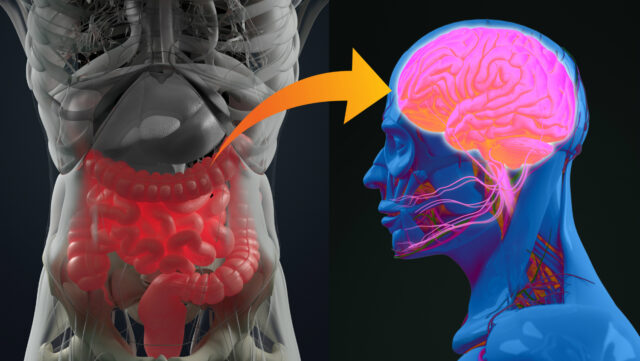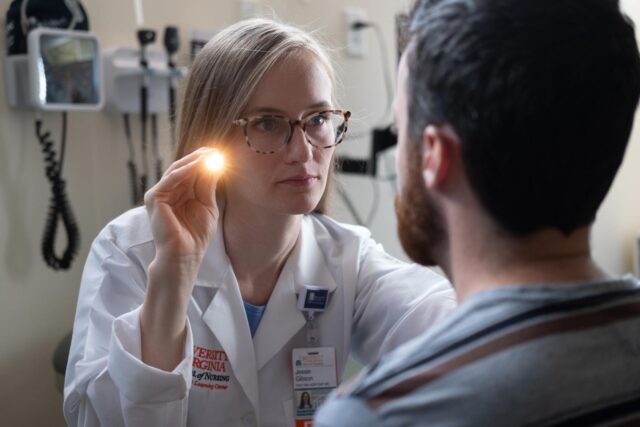
If Huntington’s disease runs in your family, it can be a scary topic to think about, and many people avoid getting tested for this reason. However, learning how to recognize the signs can be critical in helping you, family members, or even friends get diagnosed as soon as possible. This article will cover the details of what Huntington’s disease entails and what options are available for those who are afflicted with this genetic and incurable condition.

What Is Huntington’s Disease?
Huntington’s disease is a rare and incurable condition, but it is inherited by passing down a single defective HTT gene, specifically through the autosomal dominant pattern. Usually, people have two ordinary copies of this, but a mutation in it is what causes it, and it can be passed down.
If someone diagnosed with Huntington’s disease or who simply carries its gene decides to have children, it is estimated that the likelihood that they inherit is approximately 50 percent. The condition does not skip a generation, though, so typically, if one doesn’t have the mutation, it means that they won’t pass it on; however, there have been instances of people without any family history of Huntington’s disease contracting it.
This condition progresses over time, and symptoms, which usually appear during a person’s middle ages, can be categorized in stages, which you’ll learn about next.
The Signs & Symptoms Of Huntington’s Disease
The genetic mutation that results in Huntington’s disease causes degeneration of nerve cells in the brain, which cause a host of different symptoms that you can see by reading down below:

The Early Stage
Someone who is experiencing Huntington’s disease in its early stages may find themselves primarily functional, but they often start to notice signs such as involuntary movements like jerking, twitching, and tremors, which can be described as chorea.
The cognitive decline, like memory and concentration issues and problems with sleeping, also starts to appear, and they can begin to show changes in their mood, which tend to be depressed or irritable. However, it’s also possible for patients to experience psychotic symptoms early on, such as hallucinations and paranoia.
These early-stage signs sometimes cause Huntington’s disease to be mistaken for Parkinson’s disease, and occasionally it can be misdiagnosed as such.
The Middle Stage
As a person with Huntington’s disease progresses into the middle stage, the movement issues become worse, and this is where individuals begin to require assistance with ordinary tasks.
For example, walking difficulties can get to the point where a mobility walker or roller is required, and they will rely on friends and family to help them take care of them and do chores around the house and errands outside of it since people in this stage can no longer drive a vehicle safely.
The ability to be fully independent starts to disappear here, and people with this disease also begin to demonstrate weaker cognitive skills and speech difficulties. They can also have trouble eating, and this starts contributing to weight loss.

The Late Stage
In the late or end-stage of Huntington’s disease, people lose all independence because they can’t control any aspect of their body. Here, individuals tend to be bed-ridden or confined to a wheelchair because their movements are completely uncontrollable, and they can’t walk.
They need total assistance with their hygiene, and because they can no longer swallow food, a feeding tube is necessary in order to keep them alive. It is presumed that all cognitive and psychiatric issues are worsened, but due to the patient’s inability to speak and express themselves at this point, it’s still unclear.
Eventually, because it is a terminal illness, people in the late stage will succumb to Huntington’s disease, usually by cardiovascular or respiratory diseases and infections at a hospice or from the comfort of their own homes.
How Fast Do These Stages Progress?
The evolution of Huntington’s disease symptoms can vary from person to person, but it’s not unusual for people to live up to 20 years following their initial diagnosis.
Therefore, people can spend many years in the early and middle stages before advancing into their final years in the late stage.

Can These Symptoms Be Treated?
While Huntington’s disease is incurable and terminal, there are still ways to manage some of the symptoms to help individuals with the condition improve their quality of life.
For example, people can treat depression and anxiety from Huntington’s disease as well as find some medication that can relieve some of the movement issues that are characteristic of the condition.
However, the progression won’t necessarily slow down, and people will eventually reach the point where these types of treatments won’t be effective enough at providing symptomatic relief.
Where To Learn More About Huntington’s Disease
Huntington’s disease is a complex condition, and although this guide has given you a brief overview of the inner workings of it, there is still a lot more you can learn about it in greater detail.
If you’re interested in reading more information about Huntington’s disease, please visit BetterHelp to find more advice on this topic, including how you can take care of yourself and your loved ones during this difficult time.
From the initial diagnosis to the very end, coping with Huntington’s disease is not easy for anyone, and here, you’ll also be able to learn how you can speak with a licensed and professional mental health professional who can help you process your thoughts and feelings and find effective stress management strategies that you can use for years.
Conclusion
If you or somebody that you know is showing symptoms of Huntington’s disease, it’s crucial to make an appointment with a doctor to get to the root of it, especially in the early stage. While the prognosis is always fatal for Huntington’s disease, these symptoms can mimic Parkinson’s disease, which is also incurable, but the treatments can vary, and the outcomes for each are different.
Neither diagnosis is good news by any means, but by being proactive and vigilant, you can potentially rule one or the other out, especially if there isn’t a history of Huntington’s disease in the family.














